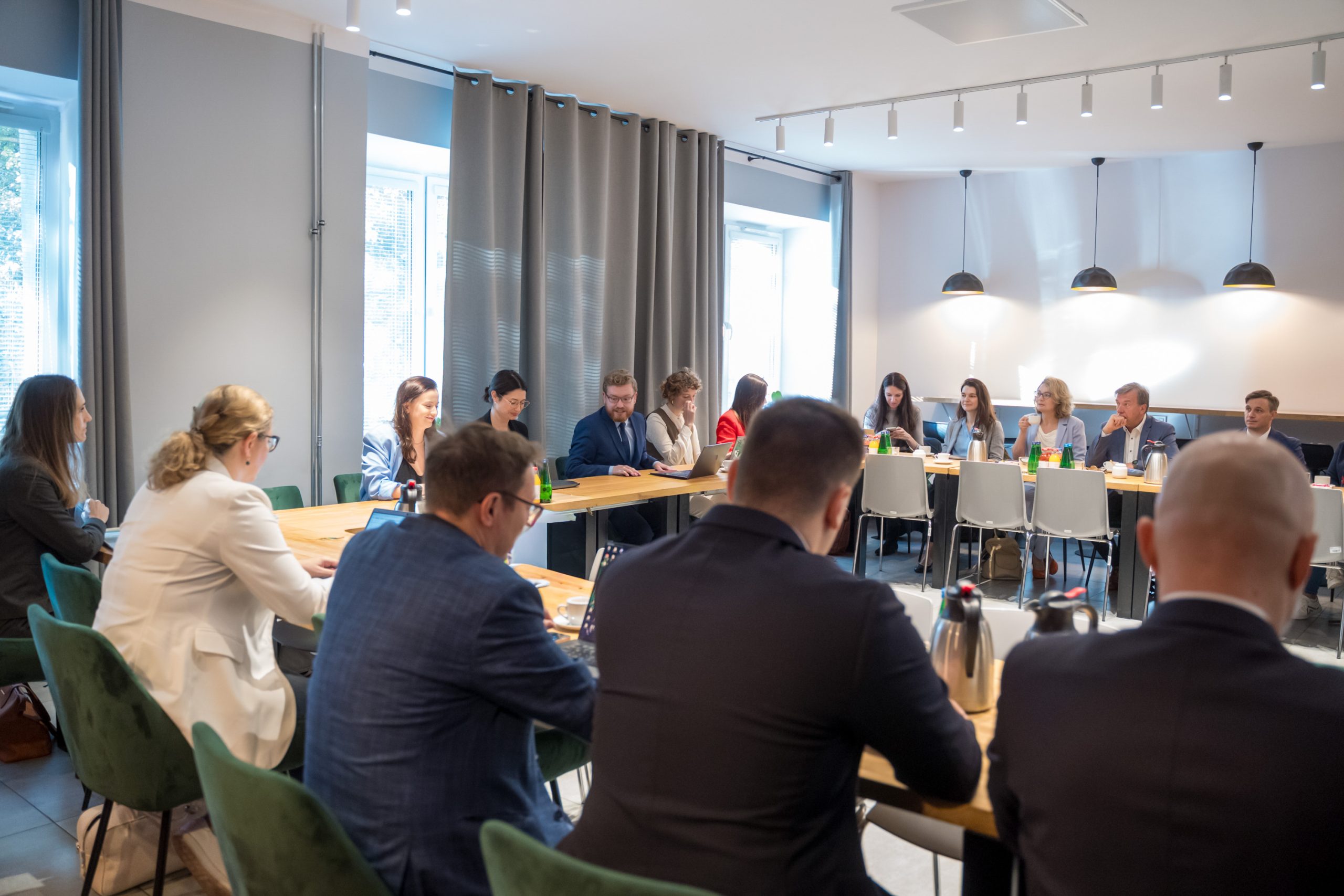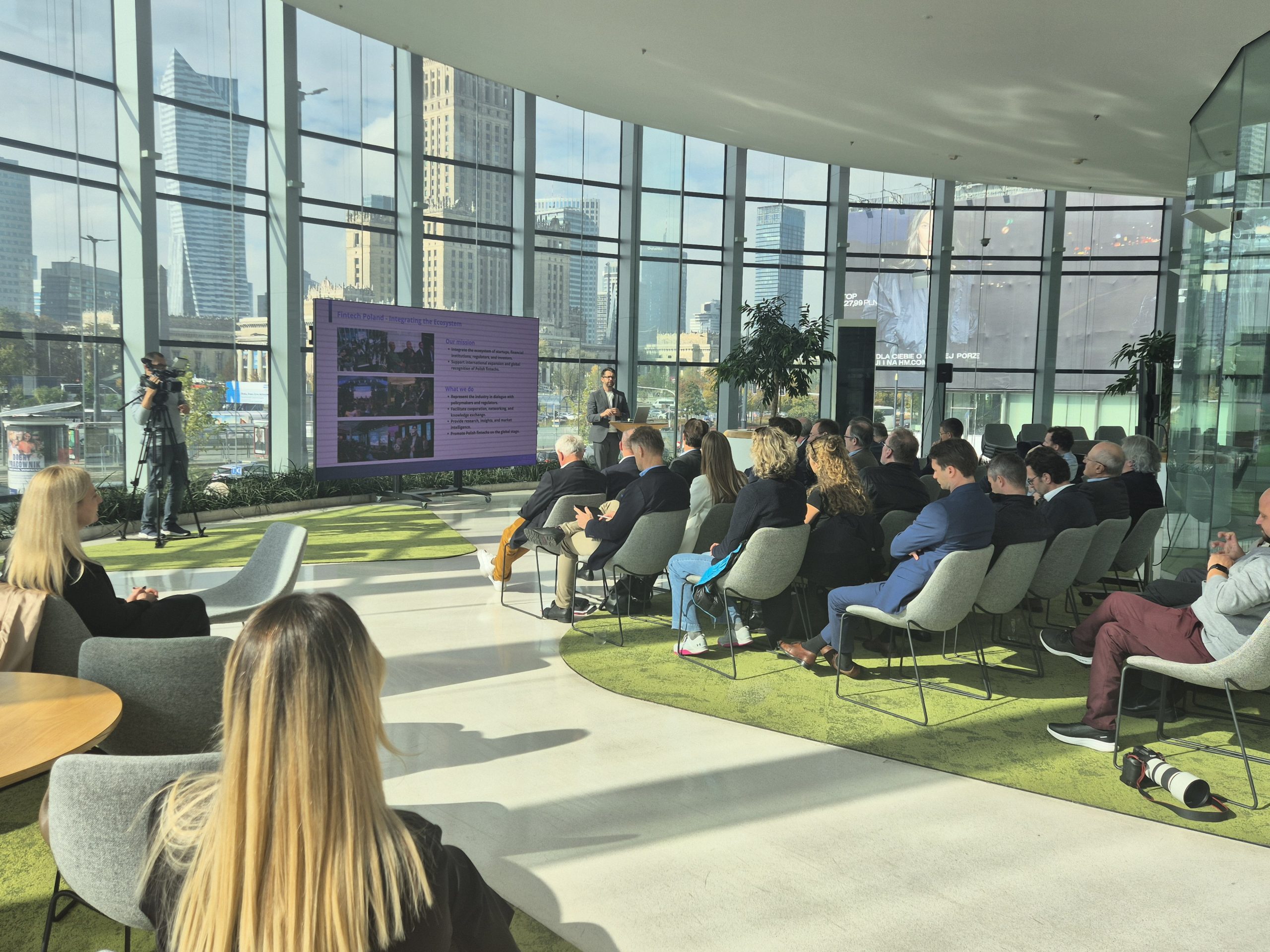On September 26, 2025, the inaugural meeting of the new initiative “AI in Action” took place, organized by FinTech Poland in cooperation with Future Finance Poland and Accenture, the knowledge partner of the Data & AI Specialization.
The special guest of the event was Deputy Minister Dariusz Standerski, who in his speech emphasized the unique character of the Baltic AI Gigafactory initiative:
“The AI Gigafactory project is exceptional, and it is taking shape before our very eyes. Nothing here is imposed from the top down – we have real agency, as we are creating the rules together with the European Commission and business. This gives Poland the chance to co-shape the most ambitious investment project ever undertaken by the EU. This is the future,” said the Deputy Minister.
During the Q&A session, participants discussed the potential impact of the project on the Polish financial sector, including opportunities for cooperation with the industry in implementing AI-driven innovations.
Next, Accenture experts – Marcin Ledworowski and Dawid Osiecki – presented the latest trends in the field of Agentic AI. They highlighted that the evolution of artificial intelligence – from rule-based systems and traditional chatbots to autonomous multi-agent systems – opens up new opportunities for financial institutions. They pointed out that 7 out of 10 global banking trends today are linked to generative AI. These technologies not only reduce costs and boost productivity, but also support the development of new revenue streams through offer personalization, customer loyalty, and innovative business models.
Case studies from Polish banks were also showcased, demonstrating how AI agents support sales processes, handle inquiries and complaints, and personalize product recommendations. The use of multi-agent architectures enables dynamic understanding of customer intent and automatic adjustment of services to their needs, resulting in greater operational efficiency and higher user satisfaction.
An important part of the presentation addressed the role of humans in collaboration with AI agents. The experts emphasized the importance of the “human in the loop” model as a mechanism for building trust and ensuring process transparency. They also stressed the growing relevance of open standards, such as the Model Context Protocol (MCP), which enable secure and structured integration of AI agents with financial institutions’ systems.
The event concluded with a discussion with financial sector representatives on the practical applications of AI agents. The key takeaway was that the agent-based approach is one of the core directions of the sector’s digital transformation, and that Poland – thanks to the openness of its institutions – has a real chance to co-shape the European innovation ecosystem in this area.
The “AI in Action” cycle will continue in the coming months, creating a platform for knowledge exchange between public administration, regulators, financial institutions, and technology partners. Its aim is to jointly develop best practices for implementing AI – with a strong focus on security, regulatory compliance, and building sustainable business value.
The next meeting in the series will take place on Tuesday, October 28, 2025. Those interested in participating are invited to contact Zuzanna Krauzowicz – Senior Lawyer at FinTech Poland.




